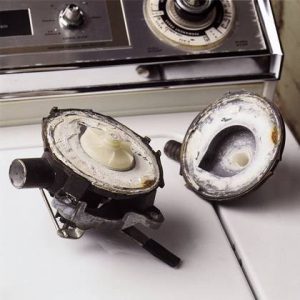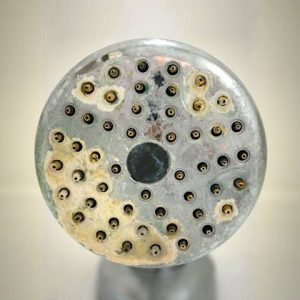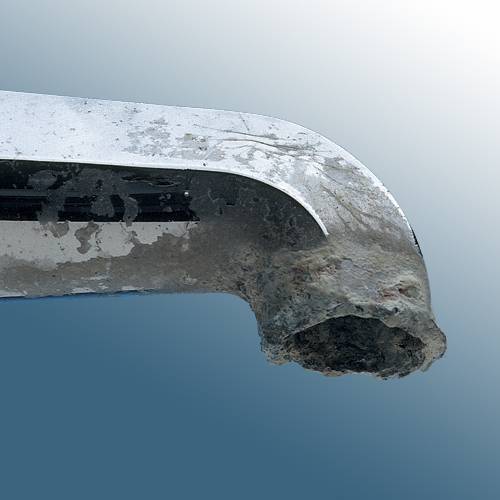Hard Water Issues That Affect Your Home, Skin, and Appliances
If you’re noticing soap scum in your shower, scale buildup in your pipes, or cloudy ice cubes from your freezer, you’re likely dealing with hard water. Hard water doesn’t just affect plumbing and appliances—it can also impact the health of your skin and hair.
Protect your home and your health by understanding your water quality and exploring the right hard water treatment solutions for your needs.
Effects of Hard Water...

Damaged Appliances
The precipitation of minerals that form rock-hard deposits – commonly known as limescale – leads to scaling in pipes, drains, and faucets.
These hard water deposits often accumulate in plumbing systems, water heaters, dishwashers, and washing machines, reducing energy efficiency and leading to premature failure of water-using appliances.

Additional Expenses
Mineral buildup inside pipes forces plumbing systems to work harder, often resulting in increased water bills.
Clothing washed regularly in hard water tends to fade more quickly than those washed in soft water. Additionally, hard water reduces soap lather, meaning more detergent or soap is needed for laundry, dishwashing, shampooing, and bathing.

Scale Buildup
Unsightly white buildup around faucets and fixtures can be difficult to remove, and over time, you may notice discoloration in bathtubs, showers, and toilets.
When soap mixes with hard water, it creates stubborn “soap scum” that doesn’t rinse away easily, leaving behind spots and residue on bathtubs, dishes, glassware, and shower doors.

Dry Skin & Hair
When body soap combines with hard water, it forms a residue known as “soap curds.” This happens when calcium and magnesium in the water create insoluble salts that cling to the skin, even after rinsing.
Regular exposure to hard water can lead to dry, irritated skin, potentially causing rashes and accelerating signs of aging. Hair is also affected, often becoming rough, dull, and difficult to manage.
What Causes Hard Water?
Hard water issues stem from an excess of minerals, primarily calcium and magnesium. While boiling can remove some hardness, it’s ineffective against water with high levels of calcium and magnesium sulfates. As water moves through soil and rock, it naturally dissolves minerals and absorbs elements from its surroundings. As a result, most freshwater sources contain varying amounts of calcium and magnesium. Depending on the geographic location, your water supply may also have elevated levels of other minerals such as aluminum and manganese.
How to Treat Hard Water
If your home has hard water, the easiest hard water treatment solution is a water softener. With a water softener system, hard water passes through the filter which contains negatively charged resin beads that attract and filter out high levels of minerals from the water, specifically calcium and magnesium. Then, the newly softened water goes through the filter and into your home.
How to Remove Hard Water Stains
In an empty spray bottle mix 50 percent water and 50 percent vinegar. Spray the mixture on your hard water stains, and let it sit for 5-15 minutes. Use a small brush or toothbrush to scrub away the stain. Wipe the surface clean with a wet towel. If this does not remove the stain, add some baking soda to the vinegar and water in a bowl and use the brush to apply it to the stain. Additionally there are hard water stain removers you can find in a grocery or hardware store.
Does Your Home Need a Hard Water Treatment System?
At Clearwater Systems, we are proud to offer free water testing to identify the level of hardness of your water. If you think you have a problem with hard water, contact Clearwater Systems for your free water test and quote. Our experts can help you find the specific water softener that is right for your home and find a permanent solution to your hard water problems.




